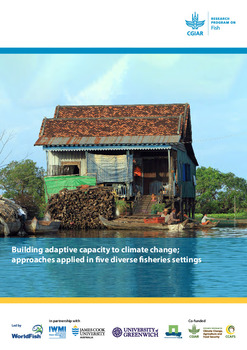Building adaptive capacity to climate change; approaches applied in five diverse fisheries settings

Climate change poses a range of risks to coastal and inland rural communities in the global tropics. People living within these communities depend directly on physical and natural environments for income, food and their way of life. Development agencies, governments and non-governmental organizations have made significant investments into helping these potentially vulnerable communities build their adaptive capacity, or in other words create ‘the conditions that enable people to anticipate and respond to change, to minimize the consequences, to recover and take advantage of new opportunities’. Recent research has highlighted how efforts to build adaptive capacity must do so across five interacting domains: assets, flexibility, social organization, learning and agency. Here we outline five research-for-development initiatives (two in coastal systems and three in inland systems) that sought to build adaptive capacity in fishing communities. We provide a short profile of each setting, and the initiative in terms of objectives, design and challenges. Further, we summarize early evidence of outcomes toward increasing productivity, improving food security, enhancing benefits from ecosystems goods and services, and increasing resilience of the poor to climate change and other shocks. The purpose of this brief is to illustrate how the domains of adaptive capacity have been approached and built in practice across communities that are experiencing climate change impacts in very diverse ways.
Permalink
Date Available
Type
Publisher
Copyright
CC-BY-4.0
Research Themes
Topics
Language